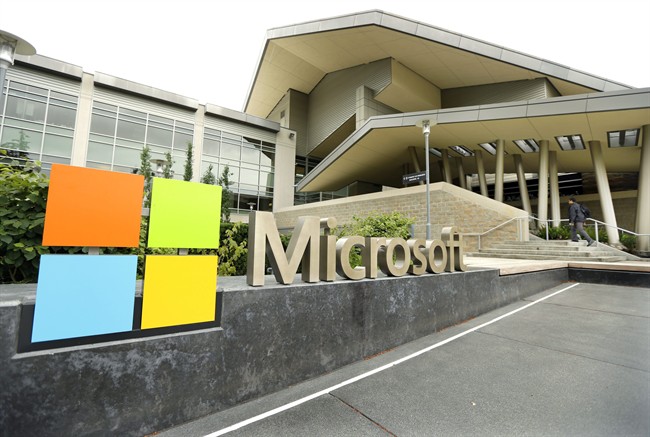TORONTO – Microsoft has sued a California-based firm for trademark violation and deceptive business practices in an effort to crack down on tech support scammers using the tech giant’s name to trick customers into handing over personal data.

Microsoft’s digital crimes unit filed a civil lawsuit in federal court against Omnitech Support on Thursday.
The complaint alleges Omnitech used Microsoft’s name and registered trademarks to provide phony tech support services to unknowing users.
READ MORE: Ont. man records fake Microsoft phone scam as warning to others
“Omnitech utilized the Microsoft trademarks and service marks to enhance their credentials and confuse customers about their affiliation with Microsoft,” read a statement posted to Microsoft’s official blog.
“Omnitech then used their enhanced credibility to convince consumers that their personal computers are infected with malware in order to sell them unnecessary security services to clean their computers.”
This so-called fake Microsoft scam has been around for years.
Consumers are tricked into thinking they’re on the phone with a Microsoft representative; if they fall for it, the user could end up giving scammers access to their computer. In extreme cases, the scammers hold the user’s data hostage and demand a ransom for its release.
According to Microsoft’s website, if you follow the scammers instructions they can trick you into installing malicious software, convince you to visit malicious websites that gain control of your computer and trick you into handing over your credit card information.
READ MORE: How to protect your computer from malware and phishing scams
In 2012, the U.S. Federal Trade Commission (FTC) fronted a major crackdown on the scam, but both U.S. and Canadian consumers continue to report receiving similar calls.
Microsoft has received over 65,000 customer complaints over the scam since May 2014.
The company estimates tech support scamming costs Americans $1.5 billion a year.
Since publishing an article on the scam in August, Global News has received multiple emails from readers who have received calls from the scammers.
Global News contacted Microsoft Canada regarding whether similar lawsuits have been filed in Canada; however, the company declined to directly address the issue.
In a statement Microsoft said, “social engineering is an industry-wide issue. We are committed to helping customers have a safe, secure and positive online experience.”
What you need to know
If you do receive a call that you think is suspicious, don’t give the representative any information.
According to Microsoft, scam artists may identify themselves as representatives from the Windows Helpdesk, Windows Service Center, Microsoft Tech Support or Microsoft Research and Development Team.
If you do fall victim to a scam and your information is encrypted, take your computer to a technician as soon as possible. Don’t pay a ransom to have your information unlocked.
You can report any suspicious calls to the Canadian Anti-Fraud Centre by calling 1-888-495-8501 or by going to antifraudcentre.ca.




Comments